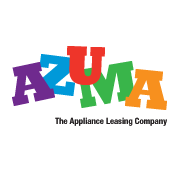A lot of our current culture revolves around the easily accessible, the cheap, the replaceable and the disposable. Even with discount items and big box super stores, all of that stuff adds up and costs money. Today I'd like to challenge you to swap quantity for quality and change your idea of what you "need" to get by.
Disposable Items
There are a lot of disposable, packaged goods that people purchase every week, but mankind thrived for thousands of years before these were invented. Think about each packaged thing you purchase and replace at least one of those each week with something you can keep instead. Do you have allergies and need to blow your nose twice a day? Instead of tissues, try a handkerchief. Having 2 or 3 on hand, one to use while one is in the wash, is usually plenty for most people. Handkerchiefs are sturdier and easier on your face. Save tissues for when you have a terrible case of the flu. Do you use plastic bags and foil to wrap up leftovers? Try glass jars or cheesecloth. There are even companies that make reusable bags that mimic sandwich bags that can be thrown in the dishwasher after a few uses.

Clothes and Fashion
When was the last time you wore that dress, and why do you need 20 pairs of jeans? You shouldn't be hanging on to clothes you might grow into or eventually lose weight and can wear again. And it could be years before you need to reuse those baby clothes. Pare down your closet to what you can wear for a week, plus a couple of seasonal or special occasion items like sweaters, swimsuits or something you'd wear to a fancy gathering. When you have less to choose from, you have less to worry about, less space to fill with stuff, and you get more creative with mixing and matching what you have. Give the extra stuff to those who need and can use it today.
Kitchen Items
There are 3 of you in your house, yet you have enough dishes and place settings for Thanksgiving. You don't have to have all that stuff just for that one day out of the year. Limiting your use to one or two dishes of each kind per person cuts down on dishes to do, provides incentive to keep things clean, and limits clutter. Think about gadgets, too: a frying pan and a knife work just as well as a grill and a slicer-dicer. Have items that do multiple things and learn to use them instead of specialized items that just do one thing.
 Storage and Someday Items
Storage and Someday ItemsWhen was the last time you went camping? Do you really need a treadmill, or can you run outside? Are you still hanging on to your 16 year old's tricycle? Remember that what you use daily is often not a lot. Get to know your neighbors, make friends in your community and learn to share. You're not going to mow your lawn or cut down a tree every day, but there are rental programs and free community sharing programs that make it easy to access convenience items when you do need them. You don't need your own personal item for each activity you do a few times a year.
100 Items
There are likely tons of other things in your home that I haven't listed. Hobbies and abandoned crafts, things stuffed under the bed, 4 different shampoos in the shower, 5 different cleaners under the sink. Decluttering your life extends to all sorts of places in your home, and the benefits include more space, less money spent and peace of mind. If there are other items you need to factor in, it helps creative thinking to limit yourself to a number. Often minimalists limit to 100 personal items (5 shirts, one toothbrush, one pen, one pad of paper, etc.). If something breaks and can't be fixed or needs to be replaced, you remove the one thing and replace it with one thing so the number stays constant. The number is arbitrary, your number can be whatever you're comfortable with. But having a number helps to keep focus and control and a mental image of what you can expect to have in your home at any given time.
It may be hard to let go of things that you have, especially if it's something of nostalgic value. But what matters most is not the things themselves but the memories and the people in them and what you share with them. If you let go of a thing, you are not letting go of that person or that experience. If you have less physical items to hang on to, you have less to worry about insuring, replacing, or losing. When you pick and choose what you keep and use, you also give yourself the freedom to worry less about the stuff you have and the stuff you're going to buy and the ability to do more.






No comments:
Post a Comment